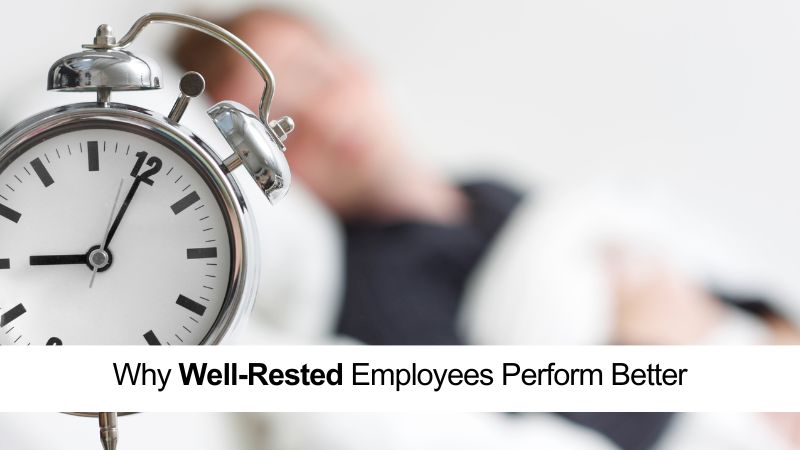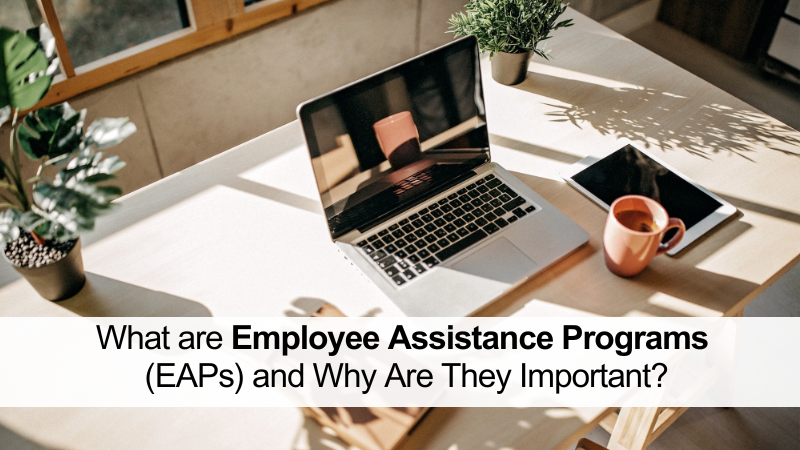Sleep isn’t just a personal health habit—it’s a productivity tool, a stress buffer, and a key driver of workplace performance. Yet, in many work cultures, being busy and burnt out is worn like a badge of honour, while rest is undervalued or overlooked. The truth? Well-rested employees are more focused, creative, resilient, and emotionally balanced. When workplaces support healthy sleep habits, everyone benefits—from team morale to bottom-line results. Here’s how sleep impacts the workplace and what employers can do to promote better rest.
1. Sleep Boosts Cognitive Performance
Lack of sleep impairs concentration, memory, and decision-making.
- Even one night of poor sleep can reduce alertness and slow reaction times.
- Chronic sleep debt leads to more mistakes, slower thinking, and forgetfulness.
- Employees who sleep well are more likely to meet deadlines, solve problems creatively, and think strategically.
Sharper thinking starts with a well-rested brain.
2. Rested Teams Communicate More Effectively
Sleep impacts how we interpret tone, manage conflict, and express ourselves.
- Poor sleep reduces emotional regulation, making workplace interactions more reactive or withdrawn.
- Well-rested employees are better listeners and more empathetic.
- Teams sleep-deprived are more likely to misread each other, leading to tension or misunderstandings.
Good sleep supports better teamwork.
3. Sleep Deprivation Fuels Burnout
Sleep isn’t a luxury—it’s essential for stress recovery.
- When employees are sleep-deprived, even small stressors feel overwhelming.
- Chronic fatigue can lead to disengagement, irritability, and eventual burnout.
- Prioritising rest helps teams bounce back from busy periods or high workloads.
Rest is a requirement, not a reward.
4. Sleep Supports Physical Health (and Lowers Sick Leave)
Lack of sleep weakens the immune system and increases the risk of chronic illness.
- Employees who consistently get less than 6 hours of sleep are more likely to take unplanned sick leave.
- Good sleep supports immune function, heart health, and hormone regulation.
- A healthier team means fewer disruptions and more consistent productivity.
Supporting sleep is a smart health strategy.
5. Promote a Healthy Sleep Culture (Not Hustle Culture)
Workplaces can unintentionally discourage sleep by glorifying long hours or late-night emails.
- Avoid sending non-urgent emails after hours.
- Celebrate rest and recovery—not just output.
- Discourage working overtime as the norm.
Changing the narrative around rest starts at the top.
6. Offer Sleep-Focused Wellbeing Resources
Sleep can be supported through education and access to the right tools.
- Include sleep education in your wellness programs or EAP resources.
- Share sleep hygiene tips via newsletters or internal communications.
- Provide access to sleep-focused apps, podcasts, or mindfulness tools.
Sleep support should be practical, accessible, and stigma-free.
7. Encourage Boundaries and Downtime
Blurring the lines between work and rest makes it harder to switch off.
- Encourage employees to disconnect after hours and take regular breaks.
- Support policies around annual leave, digital detox days, and flexible work.
- Avoid glorifying “always-on” behaviour or punishing rest.
Rested employees are not less committed—they’re more sustainable.
8. Model Healthy Sleep Behaviours as Leaders
Leadership sets the tone for how rest is valued.
- Be vocal about the importance of sleep and share how you prioritise it.
- Avoid messaging or meetings that extend into rest time.
- Encourage leaders to use their leave and normalise boundary-setting.
A healthy culture starts with example, not exception.
9. Create a Calm and Sleep-Friendly Work Environment
Physical environments can support better sleep habits.
- Limit unnecessary stress triggers like constant noise, poor lighting, or unrealistic deadlines.
- Encourage screen breaks and breaks away from desks.
- Provide quiet spaces for rest or mindfulness during the day, if possible.
A calmer workday leads to better rest at night.
10. Check In and Keep the Conversation Going
Sleep is deeply personal, but workplace culture plays a big role.
- Make rest and recovery part of regular wellbeing check-ins.
- Ask employees what they need to protect their rest—whether it’s flexibility, support, or time.
- Keep EAP support visible for those struggling with stress or sleep disorders.
Open, ongoing conversations show that wellbeing is a shared priority.
Final Thoughts
Sleep doesn’t just happen at home—it starts in the workplace. When organisations support healthy sleep, they create teams that are sharper, calmer, more creative, and better equipped to handle the challenges of modern work. By making sleep a wellbeing priority—not an afterthought—businesses can build a culture where rest leads to resilience, and productivity doesn’t come at the cost of health.
AUTHOR Madalin Frodsham, ACT Curious.
CONTACT US 📞 0438 922 979 (Australia Wide) email: hello@actcurious.com
DISCLAIMER The content of this blog is not intended to be a substitute for professional medical advice, diagnosis, or treatment.
COPYRIGHT © ACT Curious Pty Ltd, 2025.






